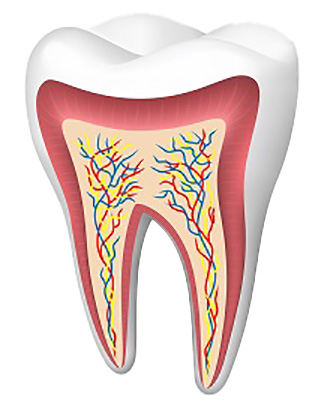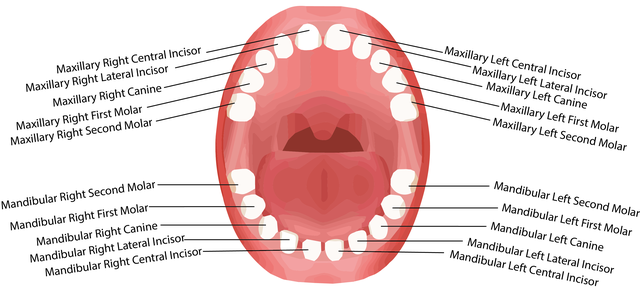Have you ever wondered how many teeth you should actually have? Your “baby teeth” or your first set of teeth should have 20 teeth in total. When you get your “adult teeth”, or your permanent set of teeth, there should be 32. However, you can have more or less for a few different reasons.
What Is A Tooth?
Teeth may look pretty simple on the outside, but there are a lot of things going on in a tooth:
Enamel
This is the layer that everyone is most familiar with. It protects the inner layer of the tooth from infection and damage. Your teeth are so important that enamel is the hardest material the human body produces, and it is only found in the mouth.
Dentin
Pulp

About Baby Teeth (Primary Teeth)
Infants have significantly fewer teeth than adults, they are designed to fall out so your adult teeth can grow in. Most infants will have a full set of 20 baby teeth by the time they are 2-3 years old. These teeth are also significantly smaller than adult teeth since an infant’s mouth is smaller than an adult’s. However, even though these teeth are temporary, they still need just as much care as an adult’s teeth.
Here are a few tips for taking care of an infant’s teeth:
- Use a minimal amount of toothpaste – You only need a “rice-sized” amount of toothpaste for infants under 4 years old.
- Use toothpaste formulated for children – Infants need less fluoride than adults do, or else it could cause health problems like fluorosis.
- Brush gently and make sure the child doesn’t swallow – Children won’t understand the health complications of swallowing toothpaste. As an adult, you will need to supervise them so they don’t ingest any.
How Many Teeth Should An Adult Have?
Most children will begin to lose their teeth around 5 years old. They will begin growing in their “adult teeth”, these 32 teeth, should grow in completely by their teens. However, it is not uncommon to grow more or less than 32 teeth.
However, a typical set of adult teeth will contain the following:
Incisors
You have 4 front teeth on the top and bottom whose role is primarily meant for holding and cutting your food.
Canines Or Cuspids
2 more teeth on the top and bottom are placed behind the incisors. They have multiple points on the teeth referred to as “cuspids”. These cuspids are used to grip and tear the food.
Premolars
Your premolars are also known as “bicuspids”, this is because there are two sets of cuspids on each tooth. Their main role is to cut and tear your food.
Molars
Molars are the big wide teeth you can feel in the back of your mouth. These teeth have a wide surface area, their primary role is chewing and grinding down the food.
Third Molars (Wisdom Teeth)

Complications Of The Mouth
The human diet over the past 10,000-20,000 years has changed significantly, it’s changed so fast that human evolution has not been able to catch up with it.
This is because of:
- Increased food production
- Eating cooked food (instead of raw meat)
- Processed foods
- Easier access to food
Having too many, or too few teeth can cause the following:
- Misaligned teeth
- Increased decay
- Impacted wisdom teeth
- Risk for periodontal disease
Oral Care Is Important
Teeth are incredibly important, not just to your oral health, but to your health in general. An infected tooth in some extreme cases, not taking care of your teeth could lead to an abscess, which can lead to significant health complications like fevers, severe pain, and even death.
Frequently Asked Questions
What is the best way to take care of my teeth?
Brush, floss, and use mouthwash twice a day, do this when you wake up, and immediately before going to bed.
I have no oral health issues, do I need a dentist appointment?
Yes, even if you have 0 issues, the dentist can assure you that you are doing everything right. Or you may not realize you have an oral health issue, but the dentist can point it out before it becomes a severe issue.
